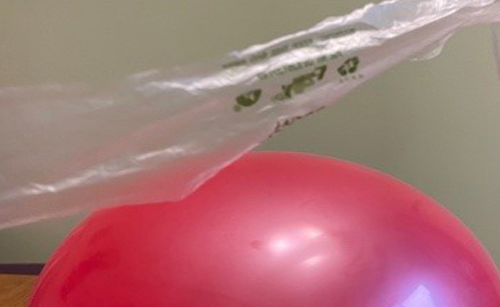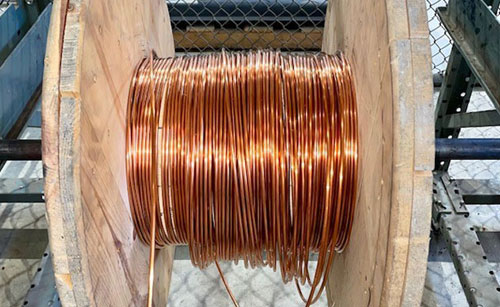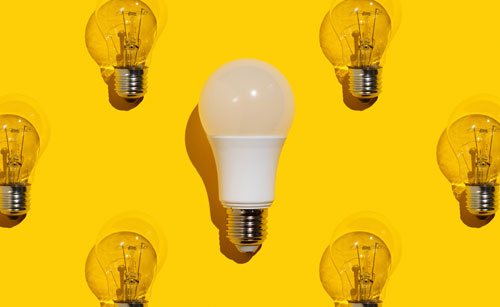Adults often ask kids to turn off lights or TV when they leave a room. Why is this important? It may seem minor, but there’s a good reason for the request. These simple actions can actually help conserve energy! Let’s learn about why we should — and more importantly, how we can — save our energy resources.
Reduce energy waste in your home and at school
So why is it important to conserve, or save, energy? The first thing to remember is that electricity isn’t free! Adults must pay for electricity and its cost is based on how much energy we use.
It’s easy to assume that a single lamp, for example, can’t really be that expensive to keep on for a few extra hours. And that’s not completely wrong – a single lamp left on for a few hours isn’t going to increase an energy bill by much. But think of the big picture! If you leave that single lamp on 24 hours a day, 7 days a week, that cost is going to add up. Now, consider the impact of every home and business in your neighborhood, city, state (or even the whole country!) all left a lamp on all day and night unnecessarily. That’s a lot of wasted energy!

We’re lucky to get most of our energy from hydropower, a clean and renewable source. It’s still important to conserve as much as possible, though! Water is renewable but we don’t have an endless amount of it.
The other thing to keep in mind is that electricity isn’t magically created. Real resources are needed to create energy and transport it to your home, and wasting energy wastes those resources. In the United States, most of the electricity is created from coal, natural gas, and nuclear power, which produces a significant amount of carbon dioxide emissions. By working together to reduce electrical usage, power plants will produce less pollution-generating energy, which is good for the planet.
Energy conservation or energy efficiency?
These two phrases sound similar and they both have the same goal, which is to reduce energy use. However, they have different definitions. Energy conservation is the action of using less energy by changing our actions. For example, this could include turning off lights when you’ve left a room or not setting the air conditioning too low. Energy efficiency is the practice of using technology that needs less energy to do the same function. This includes products like LED light bulbs and ENERGY STAR rated appliances.

If we add up the energy used by lights, TVs and computers that are left on when they’re not being used, that could represent a lot of money over the course of a year!
Energy conservation and energy efficiency go hand-in-hand. Using technologies that require less energy while actively attempting to use less energy is a great way for homes, businesses, and communities to reduce their environmental impact.
Yes, kids can help reduce energy use
There are so many ways to reduce the amount of energy we use! Here’s a short list of some ways you can reduce your impact. Not every one of these ideas may work for you and your family but remember that small actions add up to create big changes!
- Turn off lights and electronics when leaving the house or even just the room.
- Tell an adult if sinks are dripping.
- During the summer, close the curtains during the day.
- Don’t keep the refrigerator door open for too long.
- Take shorter showers.
- Turn off the water when brushing your teeth.
- Ask an adult to adjust the thermostat so your home uses less heating or air conditioning when your family is sleeping and out of the house.
- Ride your bike to school or carpool with some friends.
What other ideas do you have for reducing your energy use?

Create good energy habits
Wasting energy can happen so easily, whether you leave the refrigerator open a bit too long, leave the light on in a room, or forget to turn off the water when brushing your teeth.
Help create good habits by leaving small reminder notes throughout your home or have a family challenge to see who can conserve more energy!
With just a little bit of work, these actions become second nature and conservation will be easy.
New technology is improving energy conservation
Scientists are working daily to create technology and tools that will help us save energy and rely less on non-renewable energy sources. By using these technologies in schools, businesses, and homes in the future, we’ll all reduce our impact on the environment. Here are just a few examples of what you might see in the not-too-distance future!
Magnetic refrigerators: Yes, really! This tech uses something called the magnetocaloric effect, which raises or lowers the temperature of a material by altering the magnetic field. Instead of a vapor compression that our current fridges use (since the coolant used is harmful to the environment), magnetic fridges use a water-based cooling fluid. This technology offers lower energy bills and less pollution.
Solid-state electric vehicle batteries: Electric vehicles (EVs) are a great option for reducing emissions. However, the inefficient batteries they often use mean that these vehicles can’t go far enough on one charge. Solid-state batteries can go longer between charges and also charge faster, so implementing this technology will make EVs more attractive to more consumers.
Solar glass: This interesting technology works like a conventional solar panel but the panel is clear, like glass. Not only would this make adding solar panels more attractive but regular windows could also capture solar energy. How much energy would we generate if all our office buildings had solar windows?





